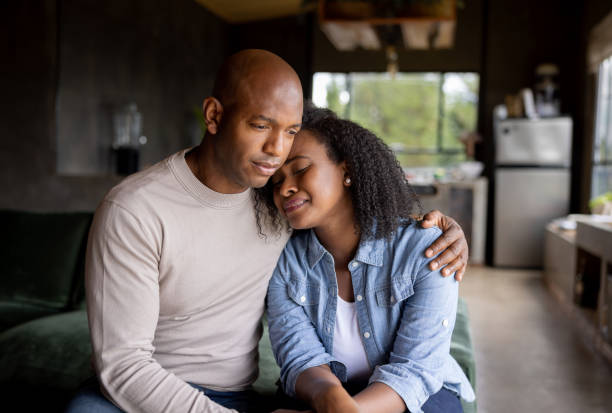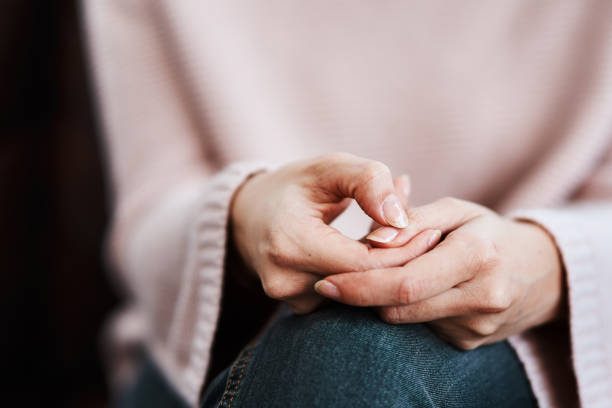
Have you ever heard of Skin-Picking Disorder, otherwise known as Excoriation? Do you struggle with it? If you find yourself picking at scabs, rashes, or the skin around your nails, you might have had times where you caused healing to slow or drew blood. Even if you find the behavior distressing, you still might not feel you’re able to stop; it might take up a lot of your day or your mental energy, you may have scars, and it may be hindering your personal or professional life. You may feel isolated in your experience, wondering what the criteria are for diagnosis or if help can be found. You might have asked yourself, “Do I have a skin-picking disorder? Is there a therapist for skin picking near me?”
What Is Skin-Picking?
Skin Picking disorder is a compulsive behavior of picking your skin over and over again; it causes problems in your life, including tissue damage and impairment in your personal and professional life. Typically, it will commence following some sort of rash or injury that you begin to pick at while it is attempting to heal or during a time of stress.
This can include picking at scabs, pimples, calluses, or even healthy skin. Often, the act of picking provides a momentary sense of relief or pleasure, but in the long term, it can lead to severe physical and psychological consequences.
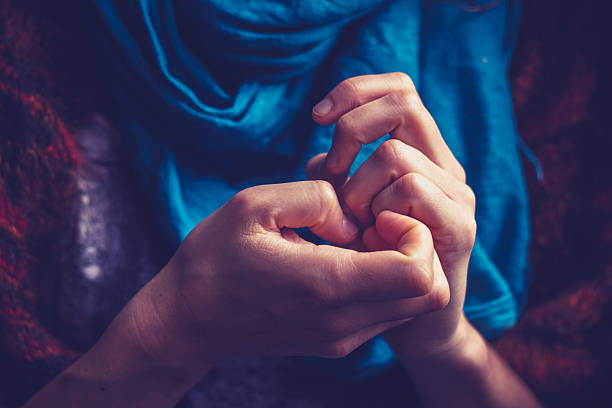
This is a Body-Focused Repetitive Behavior (BFRB) similar to trichotillomania (pulling out your hair) or picking at your nails.
Excoriation is a mental illness related to obsessive-compulsive disorder (OCD) and is classified that way because the picking is compulsive. Therefore, there is a lot of overlap with OCD in how skin-picking is treated and what the triggers are. Some triggers include stressful life events, emotional distress, boredom, perfectionism, and low self-esteem.
3 Ways to Get Help for Skin-Picking
1) Educate yourself:
Understanding what you have and what an episode looks like can reduce a lot of the shame and bring validation of the suffering you have been going through. You may not know other people who struggle with excoriation; you may only see this behavior modeled in unfavorable ways, such as portrayals of certain people in movies. This doesn’t necessarily help to de-stigmatize what you are suffering with and likely doesn’t come from a place of clinical research and qualified professionals signing off on what you are seeing.
The better we understand something, the less power it has over us. Even if we cannot control all our compulsions or thoughts, we can recognize when they aren’t serving us or when they aren’t telling us the truth. Being able to make this distinction helps to combat shame, ruminating, spiraling, and so on.

An understanding of OCD will aid you in understanding the skin-picking disorder. For example, OCD is not an adjective for wanting things to be tidy or organized but is shown by recent research as an actual neurological disorder. Different areas of the brain function differently between people who have OCD and people who do not. This biological foundation lays the groundwork for behaviors to become habits. When the urge to partake in the behavior rises (in this case, skin-picking), it crests until the behavior happens. After this, there is a sense of calm or a rush of euphoric relief. This conditions the body to seek that rush because it has gotten positive feedback from the behavior, even though the behavior itself is harmful.
Your educational process may involve reaching out to others who struggle with obsessive compulsion in some way, whether their symptoms and behaviors align perfectly with yours or not. While it is always best to get your medical advice from qualified professionals, online groups or forums may offer a way to connect with others with similar struggles. They may have gone through the same processes in seeking treatment you are going through; they may have insider tips about navigating health insurance, and they might have discovered effective compensatory behaviors through lots of trial and error. Most of all, you will understand that you are not the only person going through this. A supportive forum can help remind you that this is not a personal failing of yours but rather a diagnosable mental illness you did not bring upon yourself in any way.
OCD isn’t something you can just decide not to have anymore; research and understanding will inevitably lead you to know that a mental health professional is best equipped to help you through your process. A common aspect of OCD treatment is Exposure and Response Therapy (ERP), wherein the person faces the trigger or stimulus for an OCD behavior in a controlled setting. You may think that having access to your skin at all times would make this impossible, but in actuality, ERP would address stressors that contribute to your desire to pick. This, combined with other modes of therapy, would try to address the excoriation from all sides. Knowing this kind of information makes it easier to take the step to obtain the therapeutic support you both need and deserve.
2) Seek therapy:
Working with a specialist who is an OCD therapist is an important step to take in coping with your skin picking. A specialist who understands BFRBs such as skin-picking disorder will be able to utilize the ComB (Comprehensive Behavioral)
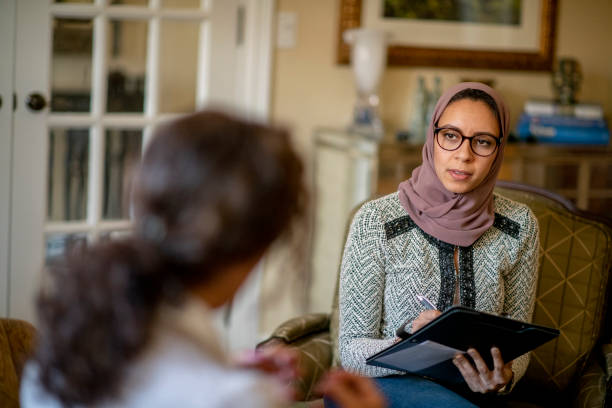
model of Cognitive-Behavioral Therapy (CBT) and habit-reversal training (HRT) in treatment with you. The ComB model takes into account your senses, your thoughts, your feelings and emotions, physical responses and actions, and where these incidents occur. Therapy for BFRBs looks at stimulus control, mindfulness, and behaviors. First, you will identify behaviors and what prompts them, then work on changing your response to your triggers.
Your skin-picking may have begun as something you weren’t really aware of or something you did when you were bored or distracted. This is one behavior pattern to address and acknowledge; do you sit and pick while watching TV, in a long work meeting, or waiting for an appointment?
If you find that you pick your skin during times of stress, anxiety, or anger, then the treatment is not to attempt to never be stressed or angry (though reducing overall stress through mindfulness and relaxation techniques is part of the treatment) but to create a plan of how to deal with triggers and also try to determine where they can be avoided and/or diluted. A Cognitive-Behavioral intervention strategy would seek to create responses to what you notice about yourself. First, you have to notice and acknowledge when you are skin-picking. A full catalog of all those occasions would enable you to see patterns and identify triggers. HRT would then dictate that when you feel compelled to pick, you instead do an opposite action, like clenching your fist or hugging yourself.
Over time, CBT would help you create responses to stimuli and come up with preventative actions you can take. For example, knitting or playing a game on your phone while watching TV addresses a situation that you will likely be in and wish to be in a while, also replacing the skin-picking behavior with a different way to occupy your hands. In this way, you can make a lot of progress on your own, aided by therapy in between. The key is to create confidence in you that you are able to change this behavior pattern and take action even when you are on your own. Not only that but for you to know that even when your interventions don’t work the way you want them to, you are still able to refocus and resume your strategies.
We don’t overcome obstacles by never failing but by having emotional resilience and bravery to handle our setbacks. Therapy provides an outlet for frustration, a neutral space to return to and unpack the process, and support from someone who understands without a doubt that skin-picking isn’t something “you should just stop doing.” That may be validation you have been sorely lacking due to misinformation and/or a need for education in the general population about OCD behaviors. In therapy, you may work to figure out how to talk to your loved ones about excoriation. These may be tough conversations, especially if you are educating someone who previously didn’t take your skin-picking seriously or thought that shaming you about it was the best way to “get you to stop.” Having someone with whom to practice this dialogue and unpack how these conversations go is very beneficial.
Seeking medication may be part of your treatment plan that you can discuss with your therapist. The most commonly used medication to assist with the skin-picking disorder is an SSRI (Selective Serotonin Reuptake Inhibitor), but there may be other medications that perform better for various individuals. As an anxiety therapist in Woodland Hills, I have seen the difference that the correct medication and dosage can make in someone’s life and also seen when it does not work out in an ideal way. Your individual needs will determine what is best for you, which is why it is good to have a professional to guide and support you.
3) Utilize Mindfulness and Relaxation Techniques:
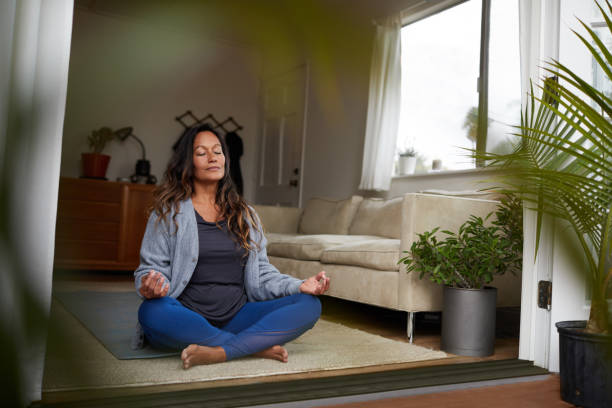
Learning relaxation techniques, such as deep breathing, meditation, or yoga, can help manage stress and reduce the urge to pick. You will never be able to fully control your environment; therefore, there will always be incidents that might cause stress and an urge to pick. Being able to center yourself and relax in response to those triggers will benefit you as you move forward. An ongoing mindfulness and relaxation practice will also help reduce your overall stress. If you take time each day to ground yourself, if you set up a routine that lowers the base level of anxiety experienced by your nervous system, then you are taxing that system less on a daily basis. Through regulating yourself, you also learn what you are aiming for when you get pushed out of your window of regulation. Returning to a state you are familiar with is far easier than aiming for something you’re not used to.
A mindset of mindfulness is a mindset of self-care. It can be challenging to take care of yourself when you feel that there are aspects of your life outside of your control when you carry shame, and when you feel beholden to practices that don’t serve you. Being aware of these obstacles but continuing to pursue taking care of yourself will create a mindset of being worthy of mental wellness. Looking out for yourself when you have compulsive behaviors allows you to navigate the aspects of your life that those behaviors show up in all of them.
Being able to ground yourself and relax is a very important skill to have, no matter what your personal situation is. Mindfulness helps with that by alerting us when stressors are beginning to creep up. Rather than being distracted and hoping we can “muscle through,” mindfulness asks us to pay attention to how we feel in our bodies, what kinds of thoughts we are experiencing, and what actions we are taking. These are all cues and clues about where we are at, what needs we are meeting, what needs we are not meeting, and what steps we might want to take. The earlier you notice a shift, the sooner you can handle it. Think about it like a sink filling up with water. There is a point at which the water will overflow if you haven’t pulled the plug, and the fallout will be greater. It can be tricky with compulsive behaviors to cut them off or resist them; you may not always be aware that you are doing them, or the anxiety created by resisting the urge may feel overwhelming. That is why relaxation techniques are so beneficial when it comes to any obsessive and/or compulsive behavior. If you attend therapy for skin-picking, your therapist will guide you through your boundaries and parameters when it comes to noticing what is happening as the urge to pick appears and grows and how and when you will intervene before the compensatory action.
If you are wondering how to get help with skin-picking, the first step is knowing that help is available. This is not a “bad habit” that is easily dropped. Excoriation treatment involves and requires comprehensive mental health training and education.

This might seem overwhelming, but the good news is that you are not the only person who struggles with skin-picking, and there has been a lot of research into how to best treat the issue. Like any other mental or physical illness, this is something you have acquired and something that deserves proper help and support. Others have gone through a similar battle; you are not the first and won’t be the last. Tools and resources are available to determine the combination of therapies (and potentially medication) that will best serve you as you work to improve this behavior.
Treatment for Skin-Picking Disorder in Woodland Hills
Do you struggle with Skin-Picking (Dermatillomania or Excoriation Disorder)? Maybe you pick on your skin during mindless tasks like watching TV or driving the car. Other times, maybe this is your coping mechanism when dealing with anxiety, stress, or anger. In our office in Woodland Hills, our OCD specialists understand that BFRBs, such as Skin-picking disorder, are part of the Obsessive-Compulsive Spectrum disorders and need individualized treatment that is more than talk therapy.
Contact us today for your complimentary 20-minute phone consultation with our Client Care Coordinator.

